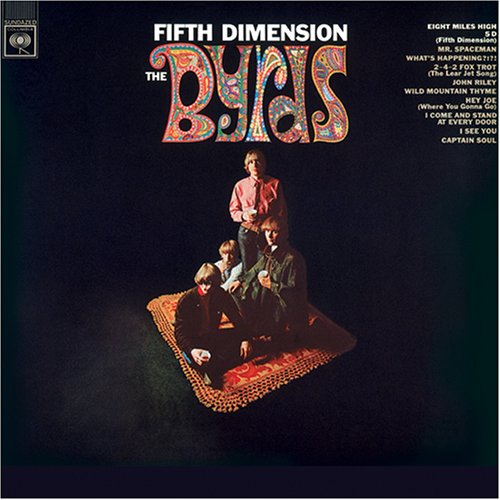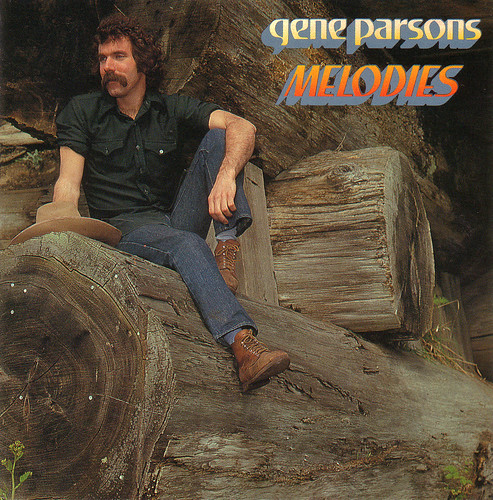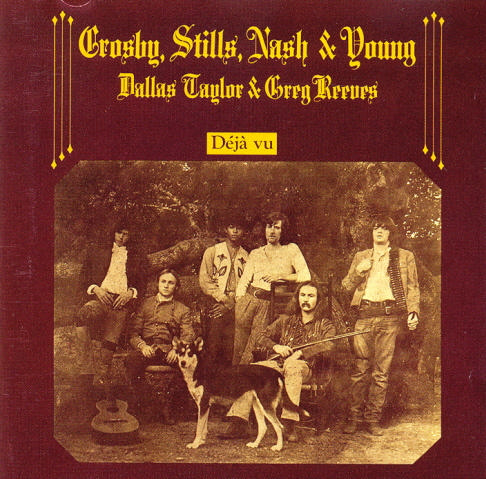The hurdles here are many: synth-clouded production,
apparent songwriting exhaustion on the part of Clark, the somewhat
desperate-seeming gambit of opening with a new spin on “Mr. Tambourine Man,”
and the album title itself, less effective in invoking his old band than in
reminding us that Roger McGuinn had already engaged in low-grade worldplay with
the (admittedly even worse) Thunderbyrd
several years earlier.
Once he starts singing, none of that matters: weary and sad
down to the core, that melancholy Clark voice pierces through the overlay of
detritus and delivers a deeply felt album, drum sound be damned. Of the nine
tracks, two are reclamations—the aforementioned opener and the Byrds classic
“Feel a Whole Lot Better.” The synthetic accoutrements are disorienting at
first—hey, this stuff is fine for the Human League, but this is the guy who
gave us White Light, cripes—but
again, Clark pierces the sonic veil. When he tries to elude the “twisted reach of
crazy sorrow” on the Dylan song, it’s as close to an autobiographical thesis
statement as other people’s lyrics can come.
Of course, there are other more obvious theses: “Rodeo
Rider” uses a pretty thin metaphor of a tired cowboy on the road to express
Clark’s own predicament. Again, delivery supersedes the rather facile
songwriting. Clark surrounded himself with much of his old No Other crew, overlooked talents from the 70s; if Andy Kandanes
hardly revolutionizes the drum kit and seems gratuitous as a co-writer on
“Rodeo Rider,” the kind of song Clark would have tossed off in his sleep a
decade earlier, their co-written “Rain Song” is one of the most beautiful,
aching songs in the entire Clark songbook. Thomas Jefferson Kaye is on-hand for
support too, offering up the brooding, ominous “Vanessa,” another highlight.
As a solo songwriter, Clark only has two new turns, one of
which, “Made for Love,” is a bit cringe-worthy in its declaration that “most of
all, girls are made for boys to love.” But if Gene never took Women’s Studies
101, he can still claim the authoritative take on Gordon Lightfoot’s “If You
Could Read My Mind,” and Firebyrd
closes with his other solo composition, “Blue Raven,” an update of the amazing “Silver Raven,”
one decade of disappointment later. It leans a bit heavily on a flute melody,
which goes from lovely to intrusive by the end, but as the summation of the
album’s backward-looking resignation and a cataloging of opportunities lost and
destroyed, it’s again sung to perfection. Clark is on a Hank Williams level of
high-lonesome here, and no keyboard or drum reverb can stand in his way. Firebyrd is probably too marred to
qualify for greatness, but it carries more emotional weight than anything else
done by a former Byrd since his own lost classic of a decade prior.
Also, I'm not sure when that cover shot was taken (there are multiple covers for this album, which was poorly and erratically distributed), but for a guy on the verge of drinking himself to death, Clark looks remarkably good, like a cross between an early John Rechy and a proto-emo twink.















.jpg)
